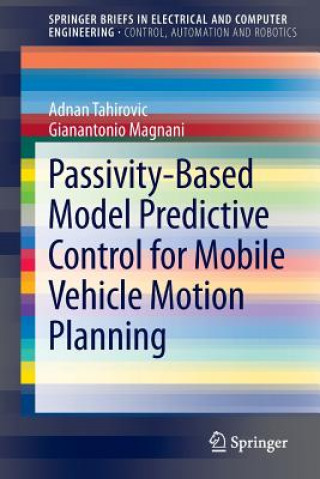
Kézbesítés
Vásárlási tanácsadó





Nem vált be? Semmi gond! Nálunk 30 napon belül visszaküldheti
 Ajándékutalvány
bármilyen értékben
Ajándékutalvány
bármilyen értékben
Ajándékutalvánnyal nem nyúlhat mellé. A megajándékozott az ajándékutalványért bármit választhat kínálatunkból.
Passivity-Based Model Predictive Control for Mobile Vehicle Motion Planning
 Angol
Angol
 168 b
168 b
30 nap a termék visszaküldésére
Ezt is ajánljuk


Passivity-based Model Predictive Control for Mobile Vehicle Navigation represents a complete theoretical approach to the adoption of passivity-based model predictive control (MPC) for autonomous vehicle navigation in both indoor and outdoor environments. The brief also introduces analysis of the worst-case scenario that might occur during the task execution. Some of the questions answered in the text include: how to use an MPC optimization framework for the mobile vehicle navigation approach; how to guarantee safe task completion even in complex environments including obstacle avoidance and sideslip and rollover avoidance; and§what to expect in the worst-case scenario in which the roughness of the terrain leads the algorithm to generate the longest possible path to the goal. §The passivity-based MPC approach provides a framework in which a wide range of complex vehicles can be accommodated to obtain a safer and more realizable tool during the path-planning stage. During task execution, the optimization step is continuously repeated to take into account new local sensor measurements. These ongoing changes make the path generated rather robust in comparison with techniques that fix the entire path prior to task execution. In addition to researchers working in MPC, engineers interested in vehicle path planning for a number of purposes: rescued mission in hazardous environments; humanitarian demining; agriculture; and even planetary exploration, will find this SpringerBrief to be instructive and helpful.
Információ a könyvről
 Angol
Angol
Kategória




 Hogyan vásároljunk
Hogyan vásároljunk


























